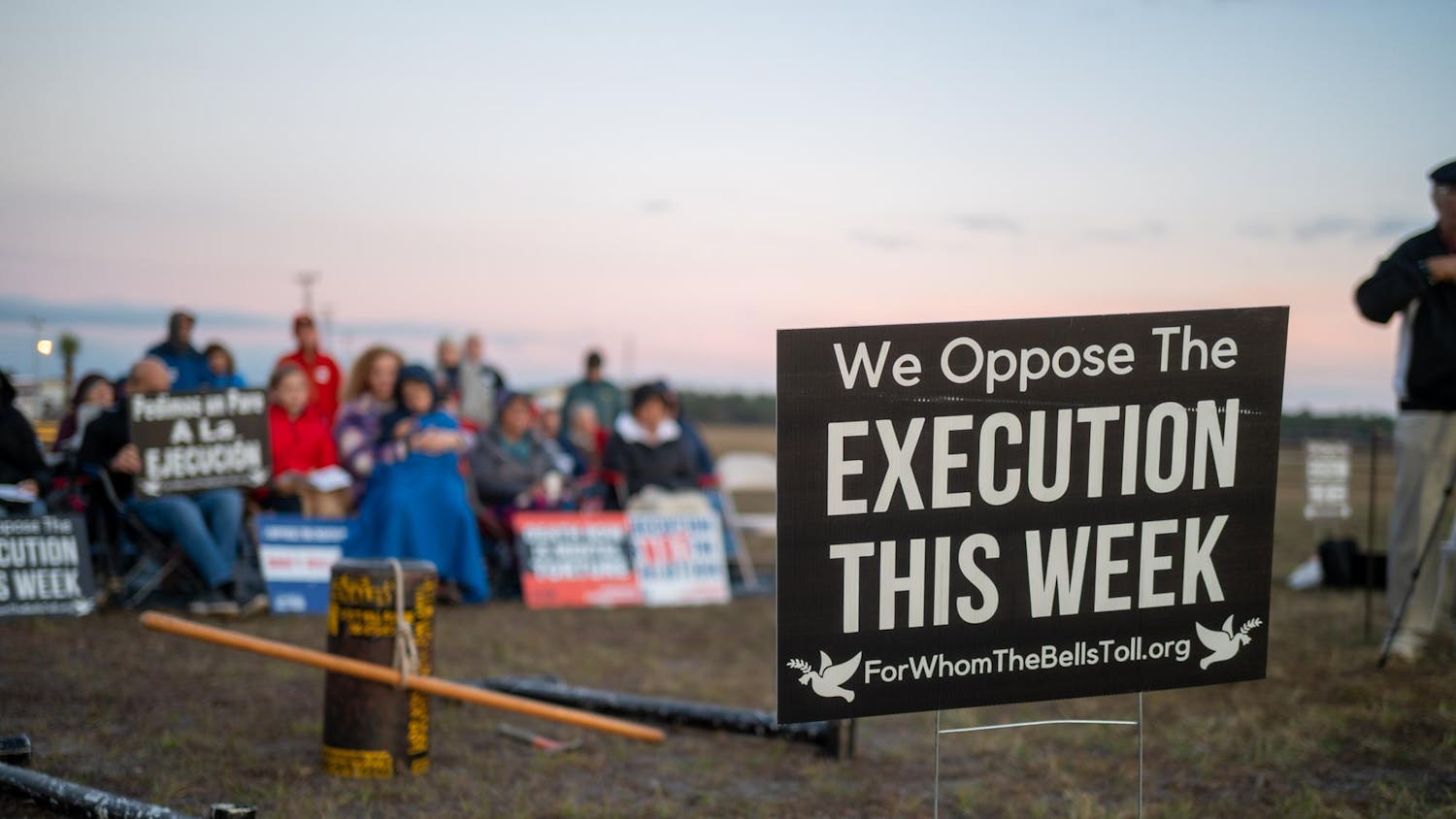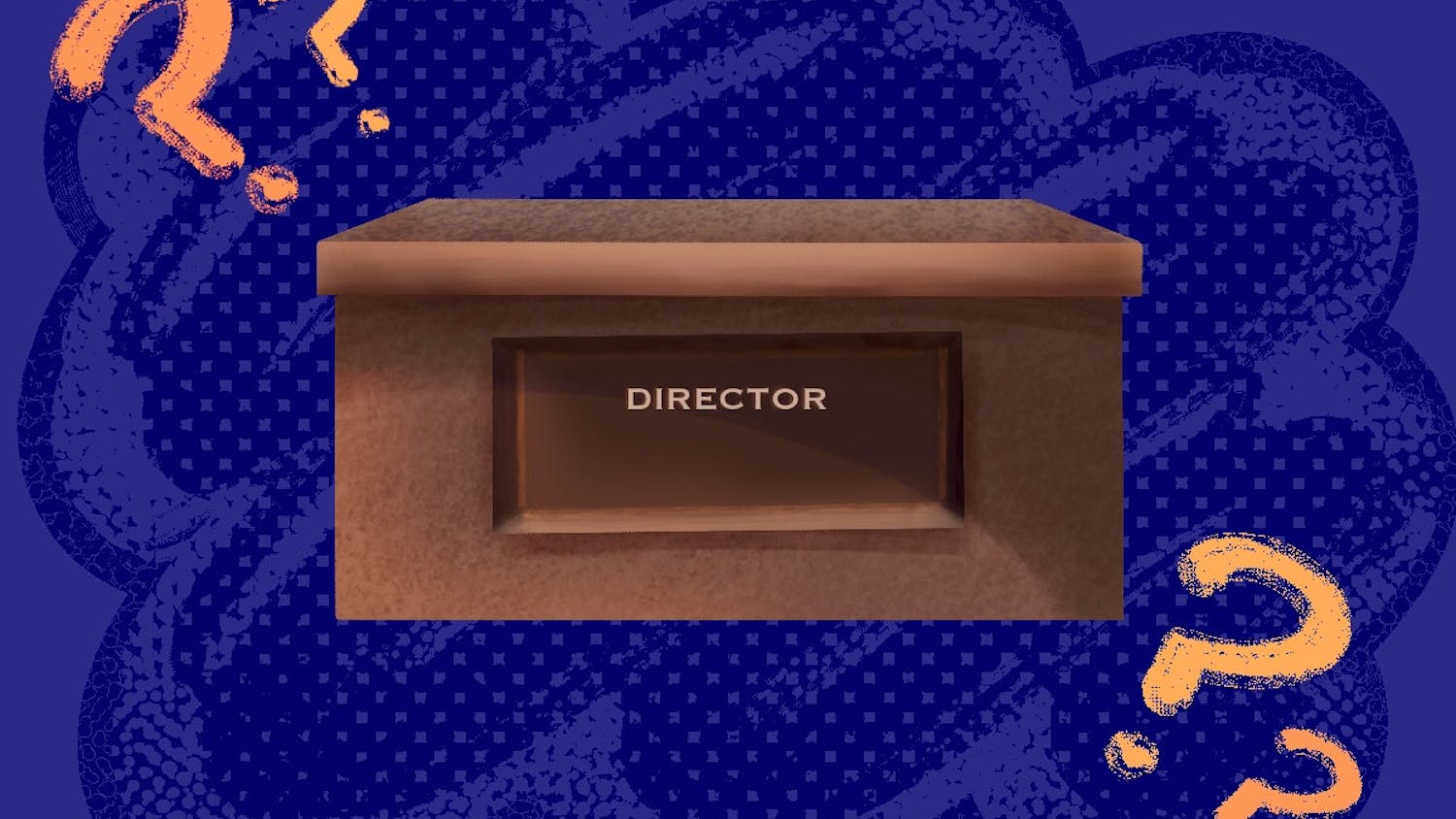In a Broward County courtroom on Dec. 21, Seth Penalver sat quietly next to his lawyer, waiting to hear the jury’s verdict for a 1994 triple murder he claimed he didn’t commit.
After 18 years behind bars — six of which he spent on death row — and three trials, he got his answer: not guilty on all charges.
He wept into his hands as his lawyers embraced him. He kneeled in front of his seat and prayed. From that day on, he was a free man.
Almost a year since his release, Penalver, 40, said he still remembers the feeling of being acquitted in a case that became well-known in Broward County.
“It was surreal,” he said.
Penalver spoke about his exoneration to about 50 people Saturday inside the St. Augustine Church and Catholic Student Center in Gainesville. Herman Lindsey, a 40-year-old Broward County resident who was acquitted of a 12-year-old murder case in 2009, also talked about his experience.
Gainesville Citizens for Alternatives to the Death Penalty partnered with Witness to Innocence to bring Penalver and Lindsey to Gainesville.
“There’s a lot of people who don’t follow the issue of the death penalty,” said GCADP co-coordinator Miriam Elliott. “They certainly don’t know how many (death row inmates) have been exonerated in Florida. They don’t know the stories behind them.”
***
Since 1973, Florida has exonerated 24 death row inmates — the highest in the United States.
Death row inmates can have their convictions overturned if they show legal error or new evidence that supports their innocence. This can include government misconduct, such as state prosecutors withholding evidence during trial, eyewitness error or DNA analysis. Lindsey and Penalver were Florida’s most recent exonerated cases.
In 2006, the Florida Supreme Court granted Penalver a retrial after he was sentenced to death in 1999 for the murders of a Miramar club owner and two women. One of the justices’ rulings said the quality of security footage shot inside the club owner’s house during the murder was so poor that they couldn’t determine if Penalver was the gunman.
That same year, Lindsey was convicted for a 1994 murder of a Ft. Lauderdale pawnshop owner. The justices, however, later voted to overturn Lindsey’s death sentence conviction, saying state prosecutors didn’t have enough evidence to prove he shot and killed the owner.
Richard C. Dieter, executive director of the Death Penalty Information Center in Washington, D.C., said with 80 people executed in Florida since 1979, one person is exonerated for every three executions.
“That’s a terrible ratio,” he said. “That means there’s far too many mistakes being made.”
With the recent passing of the Timely Justice Act, which will speed up death penalty sentences limiting the time innocent inmates have to appeal their cases, Penalver and Lindsey said the death penalty in Florida should be abolished.
“The system is wrong,” Penalver said. “If you get it wrong one time, that’s all it takes.”
***
While Lindsey and Penalver now live as free men, they say life as exonerees has been difficult.
Employment is hard to find, especially with murder charges attached to their records. They’re also not eligible for state compensation because of prior felony convictions.
“We still live in a death sentence,” Lindsey said.
Penalver said he’s decided not to let his time in prison affect the rest of his life.
“I gotta let it go,” he said. “I don’t know how much time I have left, but I want to go out and enjoy it.”
A version of this story ran on page 5 on 11/4/2013 under the headline "Former death row inmates talk about experiences, exoneration"





